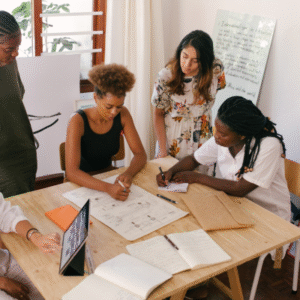The Albanese and Minns Labor Governments have jointly announced a $3.8 million investment in the first domestic and family violence-specific Aboriginal Community Safety Grant Program. The initiative aims to enhance the safety of Aboriginal women and children across New South Wales by supporting Aboriginal-led projects that address domestic, family, and sexual violence in both urban and remote communities.
Under the National Partnership Agreement for Family, Domestic and Sexual Violence Responses 2021–2030, funding has been allocated to 32 local Aboriginal-led initiatives. These projects span rural, regional, and metropolitan NSW, and focus on early intervention, prevention, healing, and recovery for individuals affected by or at risk of using violence.
Many of the selected initiatives incorporate primary prevention approaches, addressing root causes and risk factors before violence occurs. They are designed to support diverse groups including women, children, men, boys, and young people, with culturally appropriate strategies.
Examples of funded projects include:
Ngarra Aboriginal Corporation’s Healing Strong program in the Hunter region, which provides trauma-informed, culturally safe interventions for Aboriginal men and boys by focusing on emotional regulation, identity, and healing.
Jeff Amatto, a sole trader, will deliver three cultural healing programs in Wellington and Cessnock, supporting men’s healing and offering women links to Elders and support services.
Women Up North will operate an outreach service for Aboriginal pregnant teenagers and young mothers, offering culturally safe health education and engaging the wider community to strengthen responses to domestic violence.
This grant initiative supports broader efforts by the NSW and Commonwealth Governments to improve family safety outcomes for Aboriginal people. All funded projects align with:
The First Action Plan 2023–2027 under the National Plan to End Violence Against Women and Children 2022–2032;
The upcoming NSW Aboriginal Domestic Family and Sexual Violence Plan;
Commitments in both governments’ Closing the Gap Implementation Plans.
Specifically, the grants contribute to Target 13, which seeks to reduce all forms of family violence against Aboriginal and Torres Strait Islander women and children by at least 50%, and to Priority Reform Area 2, which aims to build a strong, sustainable Indigenous Community-Controlled sector.
By centring Aboriginal-led, trauma-informed, and culturally grounded approaches, the initiative promotes self-determination, fosters community innovation, and recognises the critical roles of culture, Country, and traditional gender roles in healing from violence and creating safer communities.







